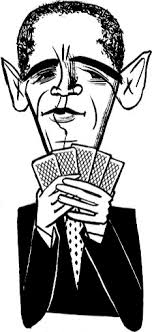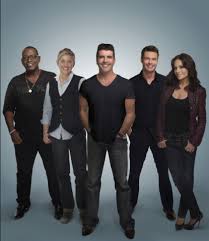
Okay, time to take a serious look at our finances now that the health care reform law now exists. There's a Washington Post article that takes a realistic look at what must now follow - major fiscal reform.
Tea Party People have been shrieking about the fiscal mess that this health care reform will add to and it appears they're right. I gather the president agrees with some of what they have to say, too - it's just simple, irrefutable math.
Conservatives have been howling that government spending cuts must come first. But Obama was convinced that without health care reform cutting down that fast-increasing budget item, all the other cuts would be negated. It had to come first.
Now he's got his reform. It unfortunately cannot stop there - the next battle will have to be government spending cuts. And government needs to raise more money.
The long-term picture for this country's economy is terrifying and it cannot be blamed on the president alone. Republicans and Democrats alike have thrown money around, hiding spending, cooking books to keep the public from knowing just how far in the hole we're going.
Remember, please, that the last president waged a war without including the billions spent in the budget. And he did it while cutting revenue with tax breaks for business and the wealthy. It just doesn't add up and we're starting to stagger as we try to keep it all balanced.
The answer isn't tax cuts, unfortunately. Not just the wealthy will have to cough up more. We all will. Can we afford it? Hell, no. But we'll have to do it just the same unless we're going to continue to pile up an unsustainable debt that we'll just stick to our kids and their kids, if the country can continue to operate that long.
You don't have kids? You're not worried about the next generation? Get on board anyway. The country's accounts might just not last until you're dead, and unless you've enjoyed the past couple of years' recession you'll be wanting to get that debt down.
The president, according to this article, plans to propose some of what promise to be highly unpopular changes after the November election. And he's playing poker again, gambling that as investors begin to shy away from US Treasury bills (and he seems to feel it won't be long), he'll be able to begin the slicing and stitching that will cut our spending down while increasing government's revenues by arguing he simply has no choice.
He already has no choice. But because this is a country of people who love to hate (evidenced by some of the most hateful and childish photos of the president I would never want to imagine when I searched for "obama health care reform"), we will only pull together if we're convinced we have a common enemy.
We do. It's the deficit. Whether you agree health care reform was necessary before fixing it or not, I think we can agree the deficit is a damned scary thing.
I freak out if I can't pay my bills at the end of the month. I cut spending, I find extra work. I don't charge it, with interest, to pay somewhere down the road.
There is no credit card, no country, big enough to cover this government's debts and operating expenses within the next ten years. We need to go on a spending diet and we need to do it willingly.
This is a country that collected scrap metal and grew Victory Gardens when it was convinced it faced a common enemy. We're facing another one - and we need our most creative thinkers, efficiency experts and diplomats working hand in hand with realistic fiscal experts to win this one.
























